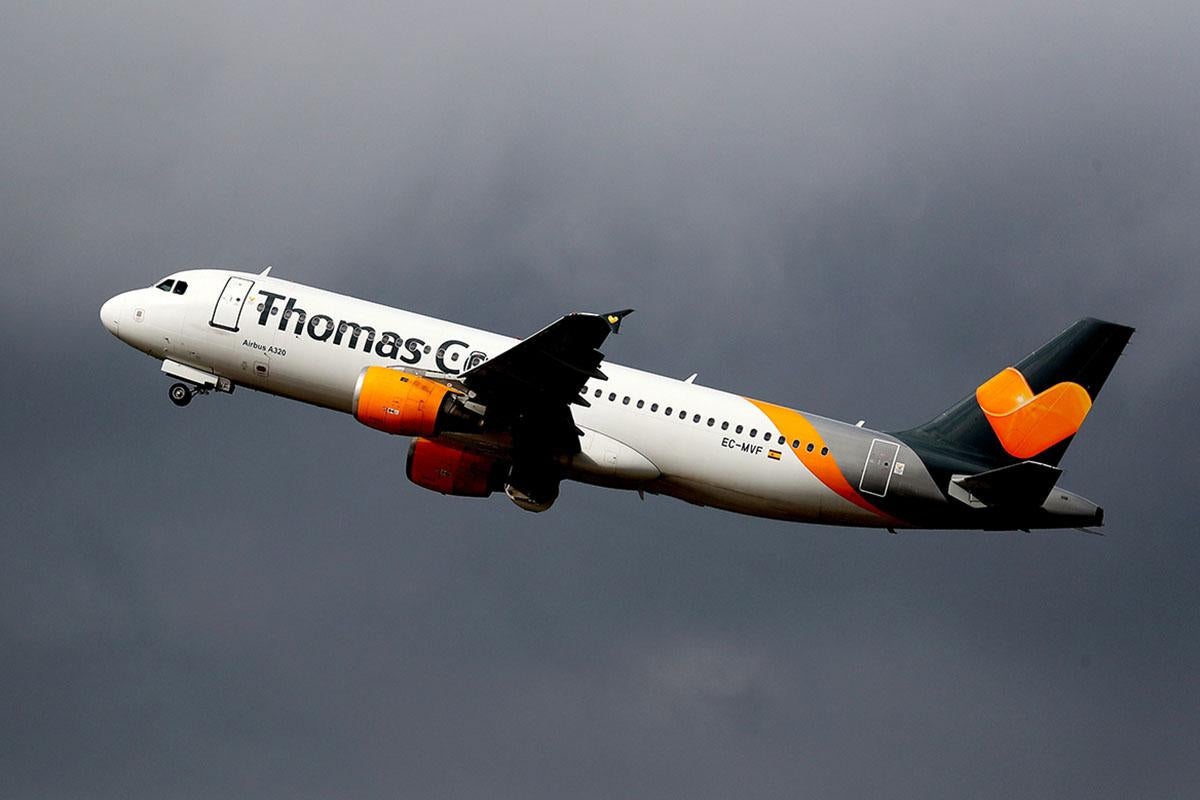Thomas Cook: How the original package holiday company met its end after 178 years
Thomas Cook, the Victorian entrepreneur who set up the company in 1841, was fundamental in transforming travel into the industry of human happiness

Your support helps us to tell the story
From reproductive rights to climate change to Big Tech, The Independent is on the ground when the story is developing. Whether it's investigating the financials of Elon Musk's pro-Trump PAC or producing our latest documentary, 'The A Word', which shines a light on the American women fighting for reproductive rights, we know how important it is to parse out the facts from the messaging.
At such a critical moment in US history, we need reporters on the ground. Your donation allows us to keep sending journalists to speak to both sides of the story.
The Independent is trusted by Americans across the entire political spectrum. And unlike many other quality news outlets, we choose not to lock Americans out of our reporting and analysis with paywalls. We believe quality journalism should be available to everyone, paid for by those who can afford it.
Your support makes all the difference.At the bitter end of an unmatched 178-year run, the demise of the company with the finest pedigree in travel was announced with two terse lines on a denuded website.
“Thomas Cook UK Plc and associated UK entities have entered Compulsory Liquidation and are now under the control of the Official Receiver.
“The UK business has ceased trading with immediate effect and all future flights and holidays are cancelled.”
Thomas Cook, the Victorian entrepreneur, was fundamental in transforming travel into the industry of human happiness. But at Manchester airport in the early hours of Monday morning, the sorrow was profound.
A dozen check-in desks in Terminal 1 should have been buzzing with excitement, with passengers dropping their luggage ahead of flights to Corfu and Cancun, Menorca and Montego Bay.
But the only staff were officials from the Civil Aviation Authority (CAA), handing out flyers and offering sympathy to holidaymakers whose dream trips had vanished overnight.
Downstairs, the trickle of travellers emerging from arrival was interspersed with sorrowful clusters of cabin crew who had confirmation, upon landing that they had just operated their last-ever Thomas Cook Airways flight, and that they were no longer employed.
Outbound passengers and inbound staff were the unwitting victims of a high-stakes negotiation that failed.
In August, Thomas Cook had put together a financial rescue plan to lift the company out of a mire of debt. It involved the largest shareholder, the Chinese conglomerate Fosun, injecting £450m and taking a 75 per cent share of the package holiday operator and its 560 retail agencies.
The travel firm’s lenders would match the funding in return for 75 per cent of Thomas Cook Airlines.
But late on Thursday, those creditors insisted that Thomas Cook source a further £200m of financial headroom to see it through a cruel winter.
Neither the private sector nor the government was interested in making the commitment. Talks at a City law firm ended late on Sunday afternoon. The faces of the Thomas Cook negotiating team as they left the office by the back entrance expressed no hope.
They returned to the company’s headquarters to administer the last rites for an organisation destroyed by misfortune and misadventure. But even as they issued grounding orders to flight managers and arranged security details for the Peterborough headquarters, the firm was still selling holidays that would never happen. The Independent was one of the very last buyers, shortly before midnight.
At 52 resorts across Europe, the Caribbean and Mexico, 155,000 Thomas Cook holidaymakers awoke to discover their travel company had vanished overnight. Operation Matterhorn, a pop-up airline, has been created from a rag-bag of chartered planes to replicate the schedules of the defunct company.
Thomas Cook failed to spot the threats and opportunities of “open skies” in Europe before easyJet and Ryanair emerged to dominate the airways. And in an era when technology allows any traveller to access flights, hotel beds and rental cars, Thomas Cook retained a high street presence of disproportionate scale and cost.
That helps explain the awful human toll of the firm’s bankruptcy: 21,000 jobs lost worldwide, at a time of year when the travel industry is not hiring.
In addition, 800,000 holidaymakers have learned their trust in Thomas Cook was misplaced. They must now wait weeks or months for refunds, while prices for flights and holidays have soared.
Shares in TUI, Thomas Cook’s giant rival, ended the day 7 per cent higher as the market predicted more expensive holidays – with less choice for future holidaymakers, and lasting damage for tourism-dependent countries such as Tunisia.
“Despite huge uncertainty over recent weeks, our teams continued to put customers first, showing why Thomas Cook is one of the best-loved brands in travel,” said the chief executive, Peter Fankhauser – a brave but futile use of the present tense for a travel icon that is now consigned to history.
Join our commenting forum
Join thought-provoking conversations, follow other Independent readers and see their replies
Comments